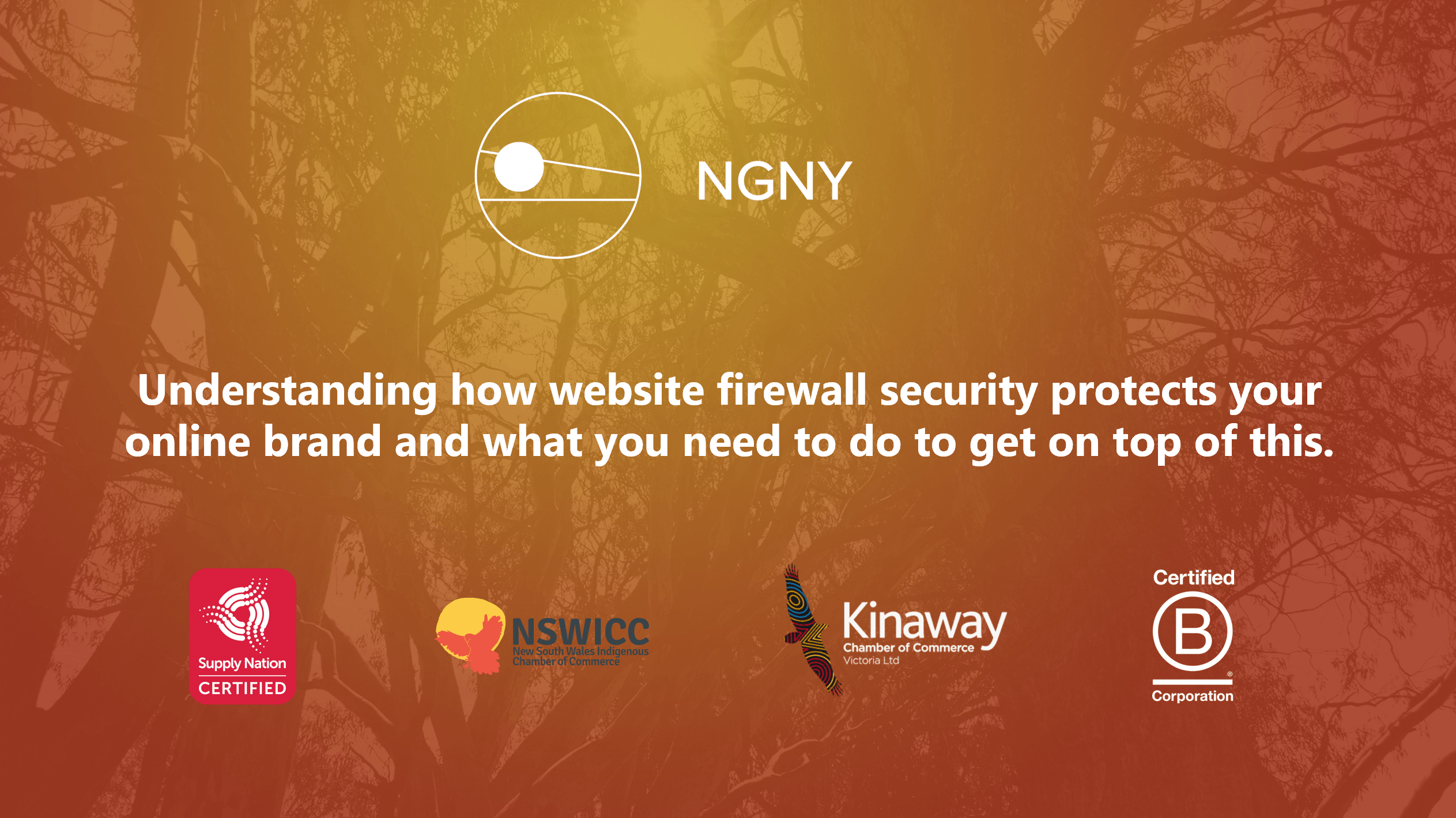
Understanding how website firewall security protects your online brand and what you need to do to get on top of this.
No matter how you think about investing for a website firewall, it has been proven to be effective and necessary especially now in this digital era. Even if you have this belief that your website is not prone to cyber attacks, that should not preclude you from protecting it because any website is susceptible. Having strong passwords and an SSL certificate aren’t enough to keep you safe. The internet is more important than ever for your business. It’s also more dangerous than ever.
In today’s digital era, investing for a top-notch network security solution is a necessity. Just as building a website entails a lot of consideration, maintaining it and keeping it free from cyber attacks are equally important. It’s a small price to pay to protect your business from much bigger expenses to troubleshoot major problems which may arise because of an absent firewall security.
What are the risks of not having website firewall security?
According to WebArx, around thirty thousand (30,000) new websites are hacked daily. Many hackers infiltrate your server in order to send out spam emails. These include unwanted code that will affect the performance and reliability of your website. Google search results prompt the users “This site may be hacked” which could lead on the following damages on your website:
- Lost or destroyed data
- Decreased consumer confidence
- Leaks of sensitive business or customer information
- Your website or email being blacklisted
- Huge drops in search rankings
- Lost business and revenue
In most cases, hackers may be doing it for the sake of hacking and not to cripple your business but thinking about its long term effects as a business owner it may cost you a lot and would definitely affect your branding’s online presence.
What is website firewall security?
A firewall can be defined as either a hardware or a software program, designed to block all unwanted incoming traffic while allowing authorized communications to flow freely. As a security enhancement mechanism, the firewall filters out the flagged data packets as per the defined rules and standards. In simpler words, a firewall acts as a shield between the private network and the Internet to protect the former from unauthorized access.
A Web Application Firewall (WAF) is probably one of the most popular preventive and/or detective security controls for web applications today. Garter’s Magic Quadrant (MQ) 2015 for Web Application Firewalls estimates that the global WAF market size is as big as $420 million, with 24 percent annual growth.
PCI DSS 3.1 requirement 6.6 suggests WAF deployment as an alternative to vulnerability scanning: “Installing an automated technical solution that detects and prevents web based attacks (for example, a web application firewall) in front of public facing web applications, to continually check all traffic”. ISACA’s “DevOps Practitioner Considerations” includes WAF into the 10 key security controls companies need to consider as they embrace DevOps to achieve reduced costs and increased agility.
What are the benefits of having a website firewall security?
Considering to invest for a website firewall security is adding an additional layer of ensuring that your website can thrive and is safe from cyber threats. Essentially, a web application firewall creates a set of rules designed to protect your website. The long-term benefits of having a website firewall include the following:
- Blocking unwanted web traffic from accessing your site
- Protecting against hacks, brute force attacks, DDoS attacks, cross-site scripting, SQL injection, and zero-day exploits
- Virtual patching before common CMS platforms release official patches (Magento, WordPress, Drupal, etc.)
- Increases site speed and performance through advanced caching mechanisms
A firewall is not reactive, rather it is proactive because installing one necessitates it to be continuous. It does not operate only when there is a malicious attack on the website. It allows website owners to be more confident because firewalls give them the best chance to protect their website before an attack could be successful. In the unlikely event a hacker does infiltrate the website, a WAF will greatly enhance its ability to clean one’s site faster, more completely without having to spend so much money.
How can a website firewall security help your business?
- Secured online presence– A firewall security allows websites to be secured from hackers and makes you utilize the value of your money in building and maintaining your website.
- Increased credibility of your website/ brand- No one wants to deal with an unsecured website and potentially expose one’s details. In order for your brand reputation to be maintained, it is important to invest in firewall security most especially if you’re a small business start-up because according to data, sixty-percent of small business owners websites are more prone to be attacked by hackers.
- No unauthorized remote access– Consider a scenario where a cyber attacker can access your entire data and private accounts remotely; this can be prevented by disabling the “remote desktop access” feature of the firewall. Note that this feature is not capable of blocking manually allowed third-party applications to use your data. Also, if some malware program is pre-installed in your system, which usually comes along with other security issues—like Trojans, keyloggers, and backdoors, then a firewall is incapable of protecting your network and data.
- Automatic blocking of unwanted messages – Anti-spam feature of firewall helps in controlling, detecting, and preventing unwanted messages, which can contain spam, viruses, or any other threats. This responsibility makes it crucial to keep your firewall active and appropriately configured. If not done correctly, you will be an easy target for cyber attackers.
What to do next?
Check with your current website hosting provider or your website administrator if they have installed website firewall security on your website. If they have not, get them to activate this immediately, or feel free to reach out to NGNY to understand what it takes to get firewall security for your website.




